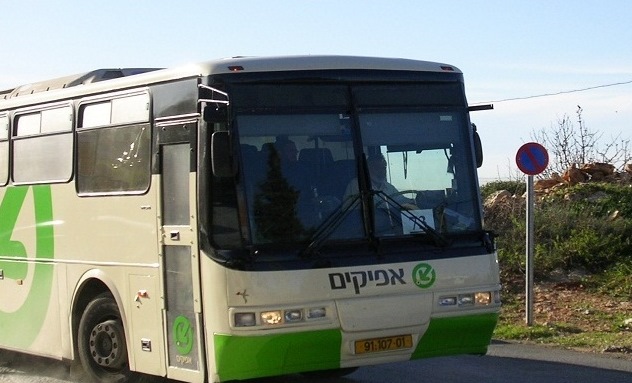Adalah: Segregated bus lines must end

Following media reports that Israeli security personnel would shortly begin forcing Palestinian workers to use new, segregated bus lines, Adalah wrote to Israeli ministers demanding that they halt the policy immediately. According to reports, Palestinian workers passing through the Eyal checkpoint next to the Palestinian city of Qalqilya will have to use separate buses from Israeli West Bank settlers. Israeli security will prevent Palestinian workers from entering Israel via other means such as private taxi, walking, or on buses that serve neighboring settlements.
Adalah Attorney Fatmeh El-‘Ajou sent a legal letter on 5 March 2013 to the Israeli Minister of Transportation, Yisrael Katz, and the Minister of Internal Security, Yitzhak Aharonovitch, detailing the reasons why they must instruct relevant transportation and security officials to end the policy of segregation.
Segregated bus policy illegal on many levels
It is Palestinian workers’ fundamental right to choose their means of transport. Refusing entrance to Palestinian workers on settlement bus lines contradicts the law against discrimination in service provision. “Preventing Palestinian workers from traveling on certain bus lines is illegal,” Adalah argued. “This degrading policy is a capitulation to settlers’ racism and the political pressure they exert on decision-makers.”
The policy of preventing Palestinian workers from using settlement bus lines is not new, but has been in place for months. Attorney El-‘Ajou described the policy as “a lifestyle of apartheid, whereby the settlers lead a prosperous life in the Occupied Territories, on Palestinian land and at the expense of Palestinian rights.”















